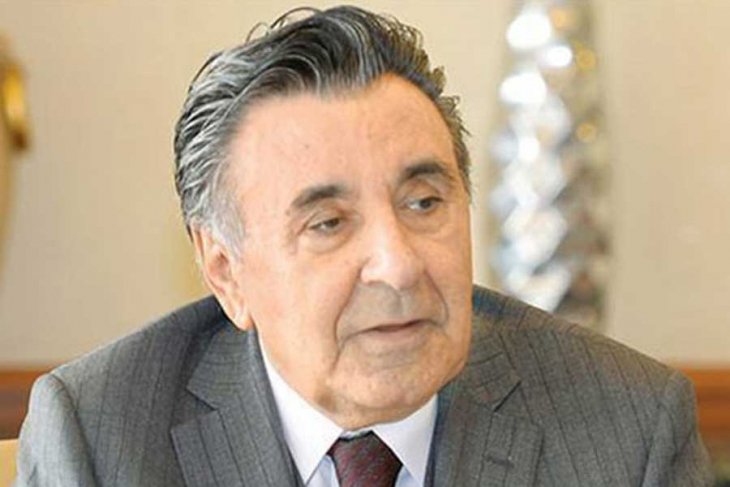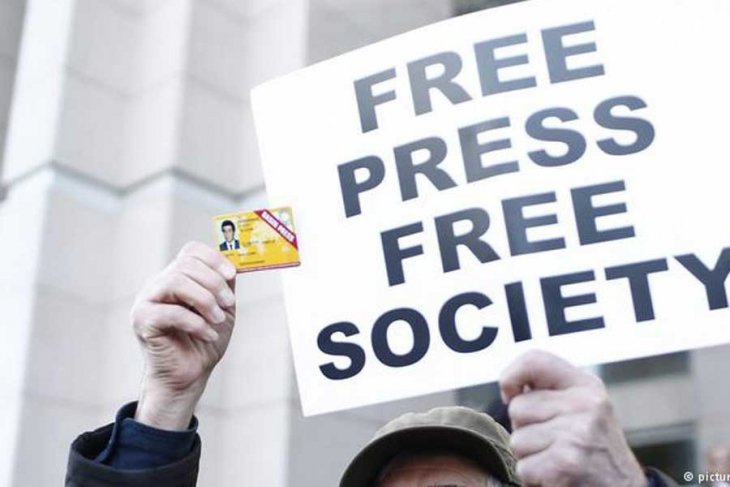Evrensel Editor-in-chief, Fatih Polat, assesses the sale of Doğan Media Group to the Demirören Group, known with its ties to the government.
The sale of Doğan Media Group to the Demirören Group is of critical import in many respects within the field of media. The tension in between President Erdoğan and this group, reflecting media with its various aspects for a while now, is itself caused by this importance anyway.
It is known that one of the first things AKP had done after coming to power was to undertake an operation to wipe Cem Uzan, who had proved that he was not a rival to be ignored 7.25% of votes he secured in the 3 November 2002 elections, from the field of media and business. AKP led by Erdoğan, while taking steps to consolidate its hegemony over the judiciary and other influential institutions after that process, it also proceeded, in phases, to establish its domination of the media field.
THE SALE WAS ON THE CARDS FOR A WHILE
The sale of Doğan Group constitutes the last move in the government’s struggle to dominate media by bringing together certain media groups and pledging them various opportunities.
The AKP period became a period of contracted business opportunities for Aydın Doğan, the boss of the Doğan Group and the sale of these last media operations to Demirören Group constitutes the farewell of this group to media sector in which it has been involved at least for the last 40 years.
There have been recurring rumours of the sale of Doğan Group on different occasions in the last two years. Especially the April of last year was a month when strong indications of this had been forthcoming. In the enquiries I have carried out within the group in order to understand the meaning of a farewell message by Vuslat Doğan Sabancı, whose the last position in Hürriyet where he worked for 20 years was to chair its management committee, there were reports of negotiations for the sale of Hürriyet and of a Qatari business as a potential buyer. The name of Posta [a Turkish daily] was also being mentioned in association with this sale process.
Subsequently, that process was left to incubate in amongst possible new balances and ‘searches for solution’. But in the interval, new claims of the sale continued to arrive every so often. And finally, we have witnessed the completion of this sale on a much more comprehensive basis.
The discussions I have carried out within the group confirmed that Aydın Doğan has made calls to editors-in-chief within the group, stating that ‘he had no more power to endure’ and that he said his farewells. I must also point out the existence of the following claim: “It is said that the money paid by Demirören (at least in part) is from Qatar.”
It will not be surprising that certain opportunities may have been provided to Demirören for this sale which has come to fore as a result of the tension between President Erdoğan and the Doğan Group. While this may be a financial opportunity which the government may have ensured through different means domestically, it may also be from Qatar with which a political bridge has been established. As I cannot confirm this aspect of the matter as having convinced me completely, I mention it only as a claim.
DOĞAN GROUP WAS, OF COURSE, NO SAINT
Let us now turn to the rest of the other important aspects of the matter. While the situation which the sale of Doğan Group will lead to is being discussed, the following points have to be underlined in response to what I consider to be problematic and reductive reactions in social media. To be sure, in Doğan Group, we are talking about a media conglomerate which has sacked many a journalist. And the Doğan Group is also the group that has driven trade unions out of the central media too.
The ending of İrfan Değirmenci’s employment, a news anchor for Kanal D Haber, for declaring the result of “no” in the presidential referendum, dubbed the ‘Presidential government system’ by the government is still fresh in our memories. In other words, in Doğan Group, we are not talking of a saint.
IT WAS A CHANCE TO BREATHE HOWEVER PARTIALLY
But despite all this, the presence of a media group, which could open its pages and screens to a news coverage and commentary that presented a relative contrast to the government’s hegemony on the media field, was providing a chance to breathe however partially.
For instance, in the period when the pressures on the media has intensified and saw a record number of journalists imprisoned in Turkey, in the last 3 years, the promotion of initiatives by journalists such as ‘I am a Journalist’ and ‘Journalists Outside’ campaigns in Hürriyetand Posta newspapers, was due to our colleagues and connections there. These really are not things to be belittled. Besides, at different elections processes, this group was also a platform where sections opposing the government could find some relative room. Now that door is closed shut.
THE NEW STATE AND NEED IN THE FIELD OF DISTRIBUTION
The process’s dimension with regards distribution opportunities constitutes its other important aspect. For newspapers like ours, distributed by agencies belonging to the Doğan Group, we are yet to see how this will work out in the forthcoming period. Even in the case that it continues to be distributed by the same distribution agency, only time will tell if problems will be experienced in getting newspapers to the readers when we publish important and influential headlines against the government. But also taking into account all these risks, it is also high time to think more seriously about the possibilities of establishing a distribution network with neighbouring newspapers which we have been pondering for a while, as a current need.
TO PLEAD WITH ONE STANDING ON THE ROOF TO JUMP
The calls for journalists in this group to resign in the follow up to the sale of Doğan Group, on the other hand, is nothing but an irrelevant position akin to “pleading with one standing on the roof to Jump” as stated in a twit by my colleague and friend Mehveş Evin.
Let us also consider the following angle. For instance, at the time when I was a student at the communications faculty, there were only 4 communication faculties in Turkey. Today they number as high as one cannot tell. Every year hundreds of candidate journalists graduate from these faculties. Considering also the restricted opportunities for employment in the field of alternative media, where are these people going to work? Besides, those looking at the matter from outside are acquainted only with those known individuals in media and tend to base their analysis on them. On the contrary, in such media formations, there are hundreds of reporters, editors, page editors, operators who work in different fields of the profession and whose names remain unknown. Once it is taken into account that the general tendency is for such sales of media groups to be followed by mass sackings, media trade unions now should ready for a possible culling. Such periods are also a testing period for media trade unions. The successes of media trade unions and professional associations with regards defence of journalists’ rights is measured with their conduct in such critical junctures.
WHILE THE MONO-VOCAL ORDER DEEPENS
In concluding the article the following must be highlighted. Once the monopolisation in the field of media and the deepening of this in favour of political power is considered as constituting a serious risk to the public’s right to news, it is clear that the struggle against this course of events that implies a ‘mono-vocal order’ should be the concern of all those sections needing democracy in Turkey. Hence the matter is well beyond being the matter of a group.
Article written by Fatih Polat

